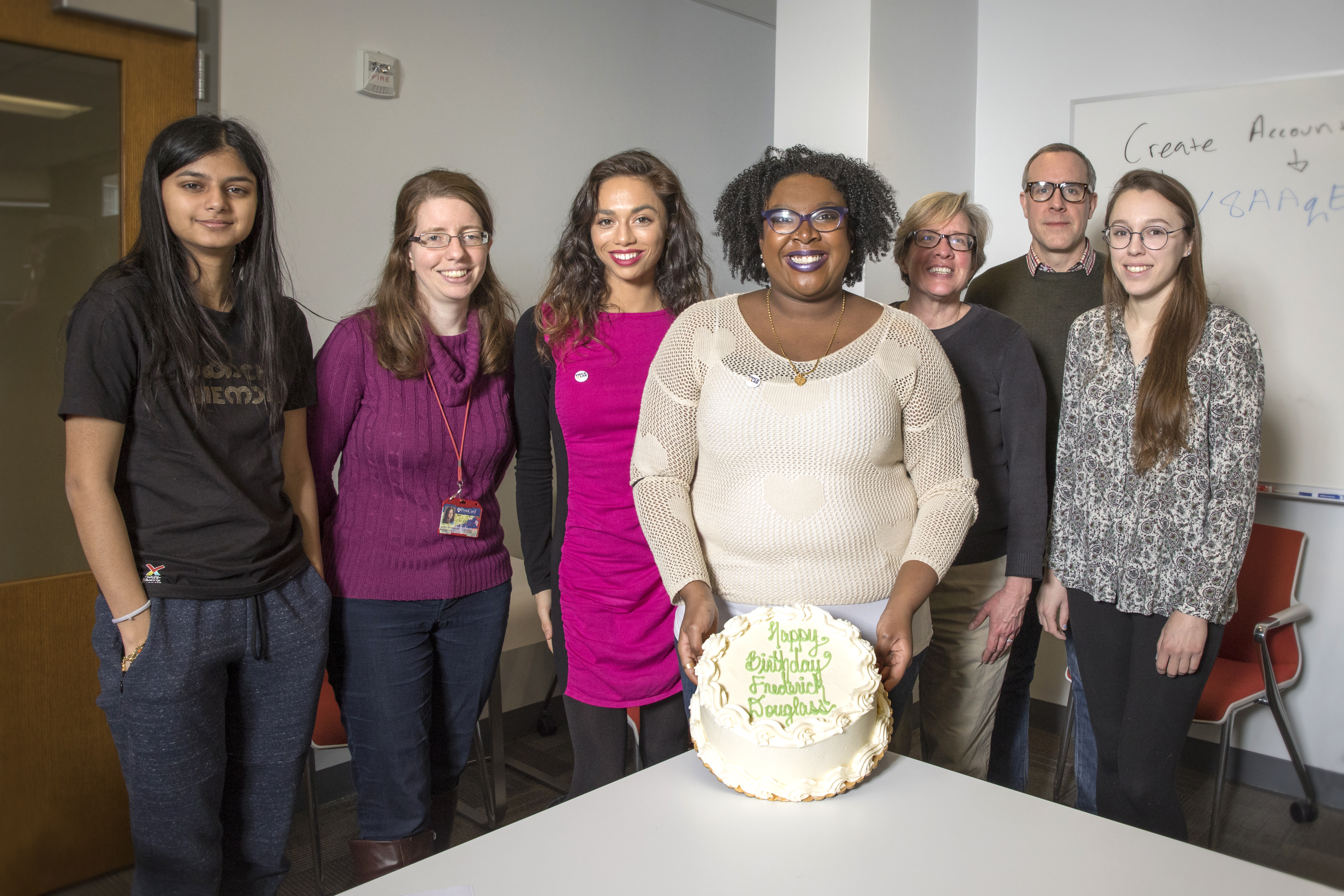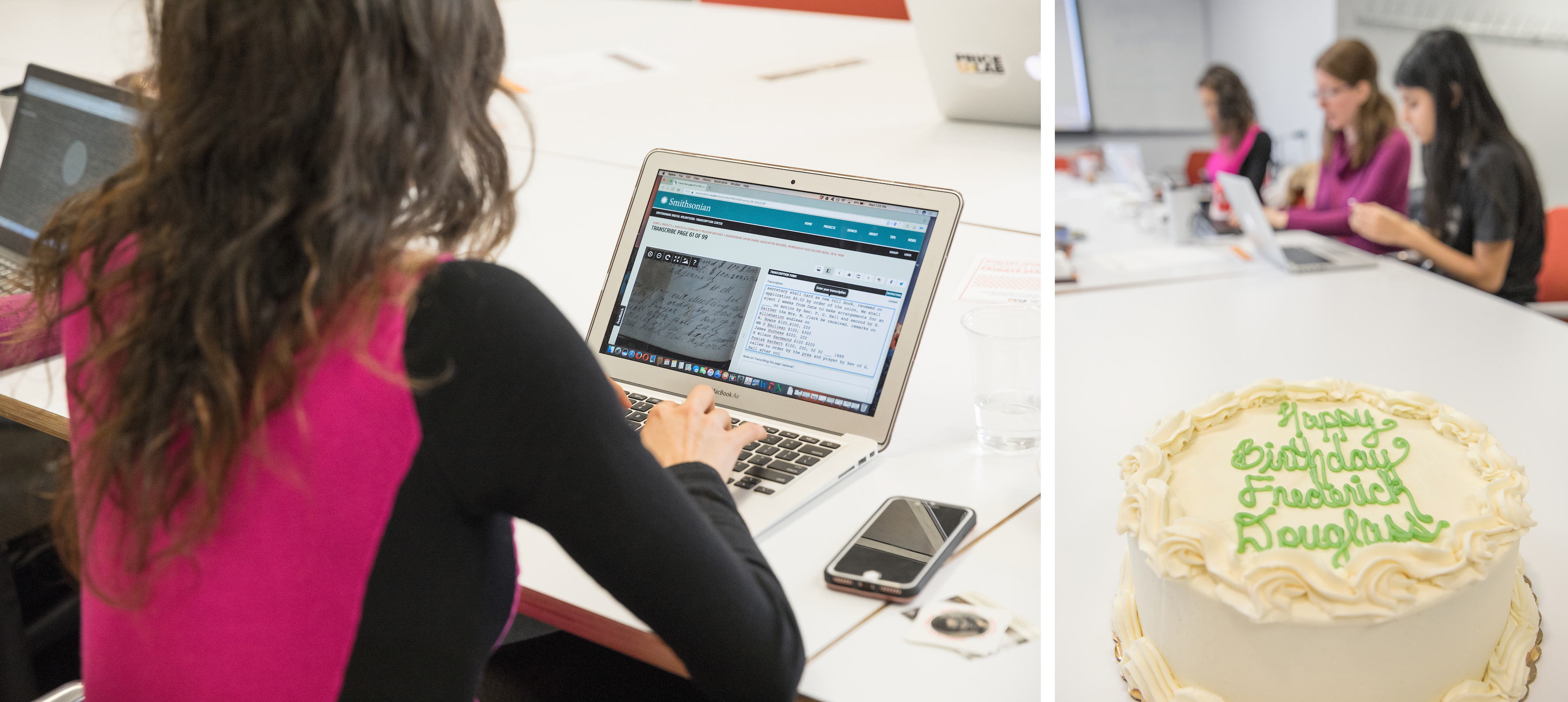Happy Birthday, Frederick Douglass
The Price Lab and the Black Graduate and Professional Student Assembly joined organizations nation-wide to celebration Frederick Douglass’ 200th birthday.
“Digital humanities is really about bringing collaboration and exploration back to the process of creating knowledge, and making knowledge more publicly accessible,” explains Leslie Jones, doctoral candidate in sociology and Price Mellon Doctoral Fellow.
In that spirit, the Price Lab for Digital Humanities and the Black Graduate and Professional Student Assembly (BGAPSA) celebrated Frederick Douglass’ 200th birthday by participating in a nation-wide transcribe-a-thon hosted by the University of Delaware’s Colored Conventions Project (CCP). More than 60 groups including universities, public libraries, museums, and social justice groups, participated in the event.
The transcribe-a-thon benefited an ongoing project of the National Museum of African American History and Culture (NMAAHC) and the Smithsonian Transcription Center to transcribe the Freedman’s Bureau Papers.
The Bureau of Refugees, Freemen, and Abandoned Lands, often referred to as the Freedmen's Bureau, was established by Congress and in operation from 1865 to 1873. It provided monetary, educational, and legal assistance to formerly enslaved people and impoverished white residents. The Bureau’s papers, including letters, notes, and handwritten and typed documents, are held by the NMAAHC. These documents are rich with information about postbellum life and in particular, the day-to-day lives of Black families. They are digitized, but not transcribed. That means they aren’t searchable and are often illegible due to the quality of the document or 19th century handwriting styles. When they are transcribed, the papers will be available to historians around the world, amateur and professional alike.
When CCP announced a transcribe-a-thon, Jones and Stewart Varner, director of the Price Lab, knew that Penn could play a part. They collaborated with Haley Pilgrim, a doctoral candidate in sociology and co-president of BGAPSA, to make the event happen—complete with a birthday cake for Douglass.
Douglass, a fierce advocate for human rights and the abolition of slavery, a gifted orator, and a prodigious writer, chose February 14 as his birthday when he became a free man. After his death in 1895, Black communities began celebrating his birthday to remember his legacy of inclusion and continue his fight for social justice. CCP began commemorating Douglass Day with a transcribe-a-thon in 2017.
“BGAPSA hosts Black History Month events every year, and this was a great fit,” says Pilgrim. “It’s important to celebrate Douglass Day because the work of Black intellectuals is often overlooked. Celebrating his birthday with events at universities and libraries recognizes his intellectual contributions.”
Varner adds that events like transcribe-a-thons are ways to build community, create resources, and highlight progress. “Energy builds when, all across the country, people are working on something at the same time. There is a bit of a spectacle that draws attention to the great work people are doing.”
Jones agrees, saying, “It’s an opportunity to get more people excited about creating free, accessible research tools, and I hope that it encourages scholars to engage with the rich intellectual traditions of African Americans.”
Anyone can help the NMAAHC and the Smithsonian Transcription Center with the Freedman’s Bureau Papers. To learn more about becoming a digital volunteer, visit https://transcription.si.edu/




